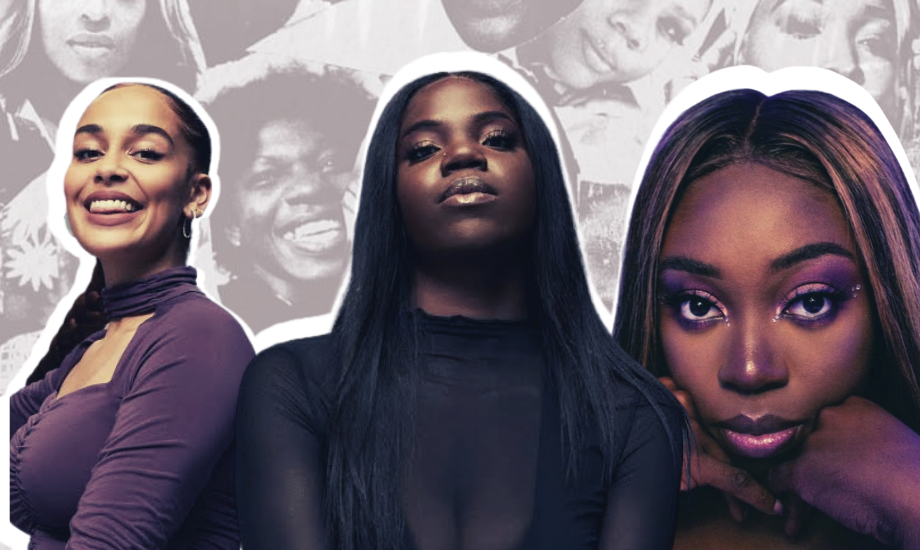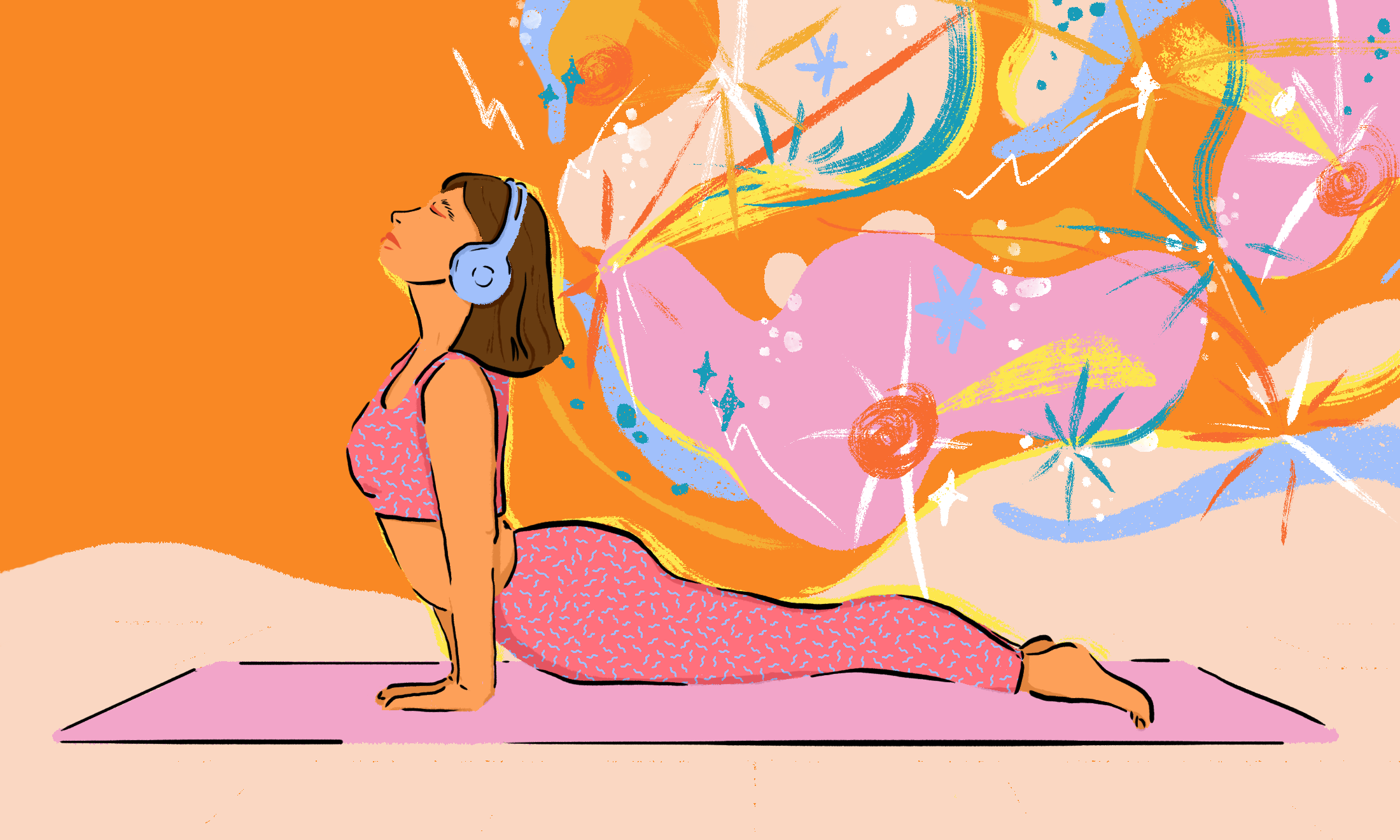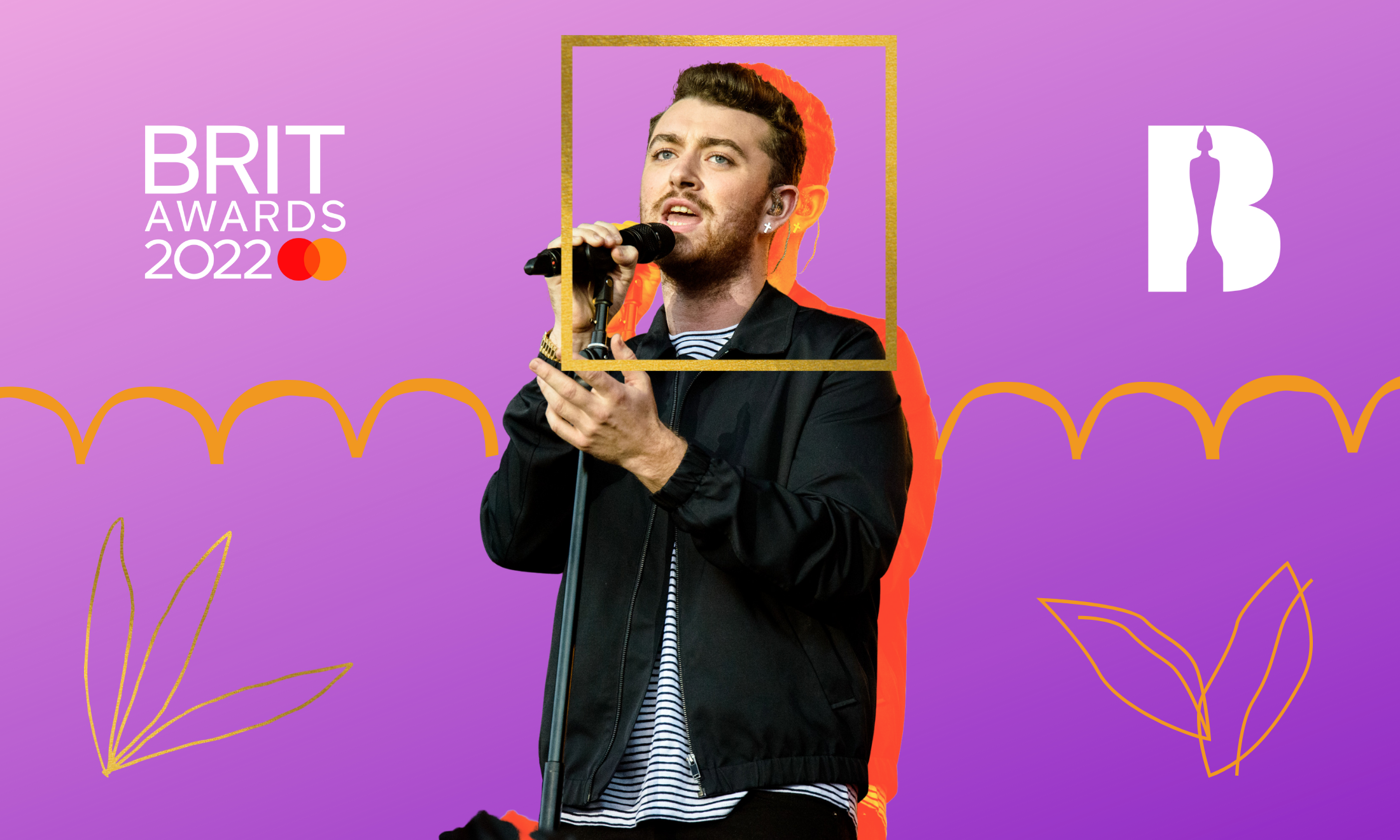
After the ‘Peng Black Girls Remix’ erased Amia Brave, challenging colourism is essential
Removing Amia Brave from Enny’s ‘Peng Black Girls Remix’ with Jorja Smith lost the song’s message but, Amia tells us, the decision-makers probably didn’t even realise how it conveyed music industry colourism.
Ella Jukwey
23 Dec 2020
Jorja Smith and Enny via COLORS YouTube, Amia Brave via YouTube, backdrop: Peng Black Girls artwork
Two months ago, southeast London rapper Enny released the video for her song ‘Peng Black Girls’ featuring the singer Amia Brave. Its simplicity was striking and there was so much beauty in seeing black women just be – it featured carefree and unbothered black women enjoying themselves in the car park and the estate. Both the song and video felt like a powerful love letter to black British women.
Enny’s mellow rapping and Amia’s dulcet tones together made for a captivating collaboration, and it was refreshing hearing black women being uplifted for just being themselves, not their perceived strength or the magic of their melanin. ‘Peng Black Girls’ recognised the beauty of our ordinariness, our variety – it understood that black women did not all come with one body type or in one hue. ‘Peng Black Girls’ is a song about black women by black women and it felt like a huge achievement when colourism and misogynoir have constantly plagued the music industry.
So, it begs the question, where was Amia Brave on ‘Peng Black Girls Remix’?
Over the phone, Amia shares with me that she only found out she wasn’t going to be on the remix a week before the video shoot for ‘Peng Black Girls’. Amia insists that she doesn’t think her being left out of the remix was malicious and believes it wasn’t the fault of Enny or Jorja. Instead, Amia questions the acts of the decision-makers. It’s important to note that Amia isn’t signed to a label, while Enny is signed to FAMM, the same label as Jorja.
She tells me, “My question was, ‘why I couldn’t be on the remix?’” – and it’s true, her exclusion doesn’t add to the song, it takes away from it. Amia also points out that “The decision-makers aren’t always mindful”. She believes that the team behind this decision needs to come out and speak about why they left her out of the song.
The remix of ‘Peng Black Girls’ replaced Amia with the award-winning singer and songwriter Jorja Smith. Jorja’s inclusion on the remix makes sense from a marketing point of view – she has a colossal following with streaming numbers that currently dwarf up and comers Enny and Amia. A Jorja Smith feature can take a track to new heights; Jorja and Enny’s COLORS performance on YouTube has already racked up over a million views in four days, which is more than double the views of the original in two months. But that still doesn’t explain the decision to take Amia off the track.
“‘Peng Black Girls’ is a song about uplifting black women, so the removal of the dark-skinned Amia Brave makes uncomfortable optics”
‘Peng Black Girls’ is a song about uplifting black women, so the removal of the dark-skinned Amia Brave makes uncomfortable optics. With over 5 million subscribers on YouTube, COLORS is a music platform that holds a lot of weight, and has been the launching pad for artists such as Mahalia – though it has also faced a lot of ridicule and criticism for consistently platforming light skin, mixed race singers. It’s important to note that Jorja Smith has been on COLORS before and her performance of Blue Lights is one of the most-watched, racking up 60 million views. Amia being featured on the COLORS channel would’ve exposed her talent to a whole new audience.
More generally, colourism has strongly affected dark skinned singers in the music industry. Black British singer Ray BLK spoke about her experiences with colourism, telling Stylist that a production duo told her not to focus on being an artist and to instead be a songwriter. In June, Beverly Knight revealed to ITV News that a record company digitally lightened her skin on the cover of her first album so she would appear more palatable to a non-black audience. So Amia being cast aside for Jorja instead of being included alongside her is a painful reminder of the struggles dark skinned singers face.
Amia and Jorja could’ve both co-existed on the song, with Amia still singing the hook and Jorja adding her witty verse. Jorja herself even tweeted that she couldn’t do the hook like Amia, so why erase her from the song instead of including her? Amia’s hook is simple yet so potent as she sings: “I think I need some time away/I took a little time, I prayed/We gon’ be alright, okay.” The song’s chorus is a promise of hope for black women, in a world where too often we feel maligned and dehumanised.
“Jorja herself even tweeted that she couldn’t do the hook like Amia, so why erase her from the song instead of including her?”
There’s been contention about whether Jorja, a mixed race woman, should have been on the ‘Peng Black Girls Remix’ at all. For me, Jorja has a place on the song, because mixed race black women do face misogynoir. In her 2018 Beats 1 interview when Jorja was asked about the colourism debate surrounding her, she recalled her experiences being mixed race in a majority white school. She told interviewer Julie Adenuga: “At school, y’know, my friends were blonde and skinny and had long hair, I had these huge extensions because I just didn’t think I fitted in. People picked on me about it all the time.” Comments like that make it understandable as to why she wanted to feature on the song and how she feels she can personally relate to the subject matter.
I don’t think the blame of Amia being left out of the song lies with Jorja or Enny, and Amia herself echoes my sentiments. She doesn’t think the decision to leave her out of the remix was made out of spite. “In my heart of hearts, I don’t think they realised how it comes across,” Amia tells me. Her belief is that whoever made the call did so without thinking about the implications of what her erasure means. It also raises the thought that sometimes ultimately the people who call the shots in music are rarely the people it concerns. It also shows the unconscious bias that still lingers in society.
Amia’s closing words to me are that two questions should be asked; “What can we do better?” and “How can we make sure this doesn’t happen again?” Hopefully, lessons are learned from her omission and she continues to receive support in her music career. Amia currently has a single out called ‘Sweet Love’ and is working on the visuals for it. It’s important that we rally behind singers like Amia Brave, even if the industry hasn’t.









